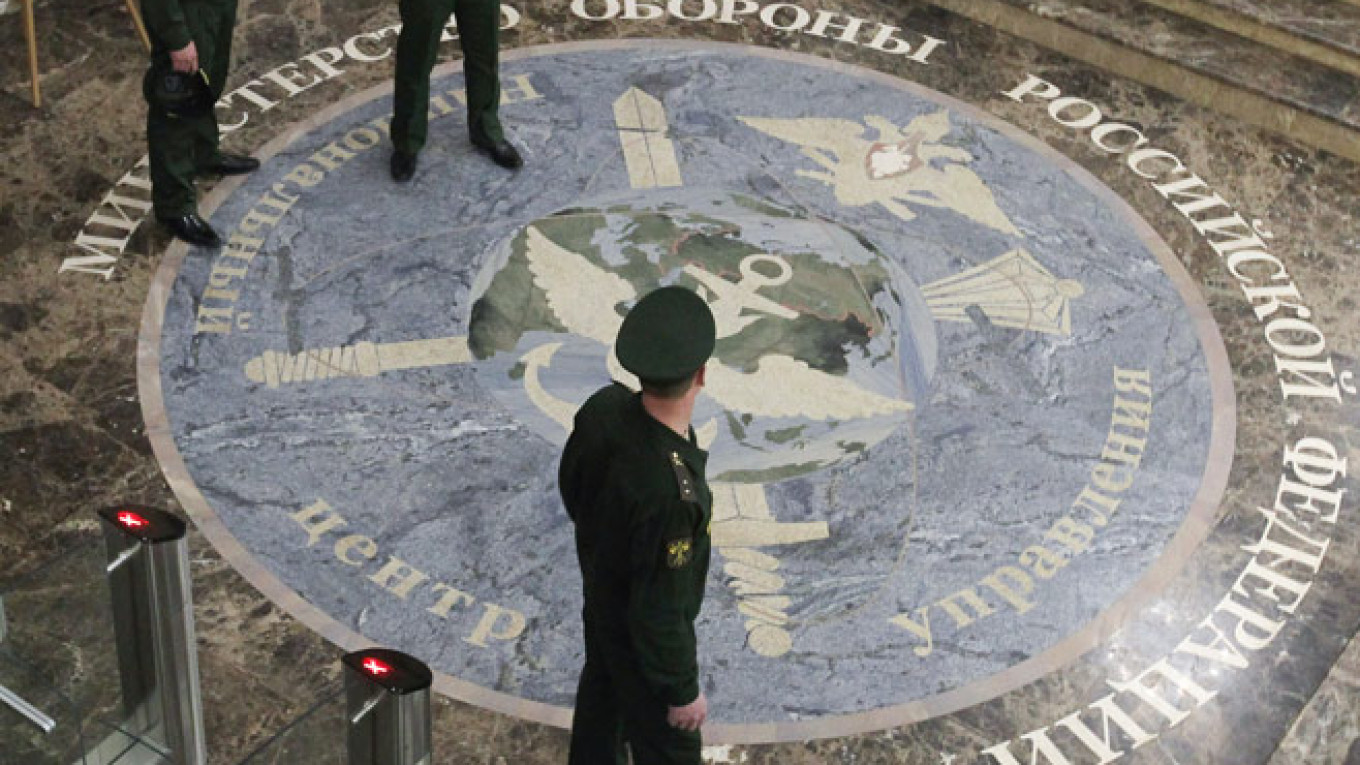Russia's military modernization drive is stalling this year under the weight of Western sanctions and the decay of the domestic defense industry, a deputy defense minister told President Vladimir Putin.
The defense industry is struggling to keep to schedule on government contracts under a decade-long 20 trillion ruble ($350 billion) rearmament campaign set to wrap up in 2020.
"The objective reasons for the failure to meet state defense procurement orders include restrictions on the supply of imported parts and materials in connection with sanctions, discontinuation of production and the loss of an array of technologies, insufficient production facilities," Deputy Defense Minister Yury Borisov told Putin during a video conference, according to a transcript released by the Kremlin on Thursday.
But he maintained that Russia's defense industries were adjusting to the setbacks and that so far, 38 percent of the government's defense purchases planned for this year have been completed.
"On the whole, one could say that an absolute majority of enterprises have acquired the necessary production pace, are fulfilling their obligations to the Defense Ministry," Borisov said.
Defense industries were the focus of the Soviet economy and are becoming increasingly important for Russia's. Putin said that work on military contracts was key to economic and technological development and providing employment during the country's current economic downturn.
"I will especially emphasize that those who are delaying production and supplies of military technologies, who are letting down related industries, must within a short term … correct the situation," Putin said.
"And if that does not happen, the appropriate conclusions need to be made, including, if necessary, technological, organizational and personnel [changes]," he said.
Bureaucracy for Bureaucracy
Putin also said that he ordered the Defense Ministry to create a new system to control the implementation of the state defense order by the end of the year.
Ruslan Pukhov, director of the Moscow-based Center for the Analysis of Strategies and Technologies, said the decision to create a new bureaucratic structure to monitor defense expenditures was a typical Russian reaction to the problem.
What is needed is transparency, he said. "It is easy to misuse public funds under the auspice of secrecy if there is no public auditing. This is a big problem in Russia."
The first reflex of any Russian administration is to create another bureaucratic structure that they think will solve the problem by monitoring other structures, he said.
Delayed Procurements
Reshaping the Russian military into a modern, effective force has been one of Putin's most ambitious projects, and one that has seen some successes.
During a televised call-in show this spring, Putin said that despite some setbacks, "without a doubt, the [rearmament] program will be fulfilled."
"Our goal is to make sure that by that time, by 2020, the amount of new weapons and military technologies in our armed forces reaches no less than 70 percent," he said.
The share of modern weapons currently in service in the Russian military ranges, depending on the branch of the armed forces, from 30.5 percent to nearly 78 percent, according to military figures quoted by Putin during Thursday's video conference.
But Borisov told the president that government defense contracts that have fallen behind schedule include production of navy guard ships, Beriyev Be-200 amphibious aircraft, Vikhr anti-tank missiles, remote control and radio monitoring equipment for Igla surface-to-air missiles, and weapon launch systems for Tupolev-160 strategic bomber planes.
Russia's economic crisis and runaway inflation may hamper Russia's rearmament plans, Pukhov said, explaining that items are more expensive now than they were in 2011, when the program was designed.
"I am absolutely sure that in money terms the program will be filled, but the number of units they ordered was very optimistic at the time, and now they will get two times less [in terms] of tanks, missiles, corvettes and aircraft than they planed six to seven years ago," Pukhov concluded.
Contact the authors at? m.bodner@imedia.ru and newsreporter@imedia.ru
A Message from The Moscow Times:
Dear readers,
We are facing unprecedented challenges. Russia's Prosecutor General's Office has designated The Moscow Times as an "undesirable" organization, criminalizing our work and putting our staff at risk of prosecution. This follows our earlier unjust labeling as a "foreign agent."
These actions are direct attempts to silence independent journalism in Russia. The authorities claim our work "discredits the decisions of the Russian leadership." We see things differently: we strive to provide accurate, unbiased reporting on Russia.
We, the journalists of The Moscow Times, refuse to be silenced. But to continue our work, we need your help.
Your support, no matter how small, makes a world of difference. If you can, please support us monthly starting from just $2. It's quick to set up, and every contribution makes a significant impact.
By supporting The Moscow Times, you're defending open, independent journalism in the face of repression. Thank you for standing with us.
Remind me later.


